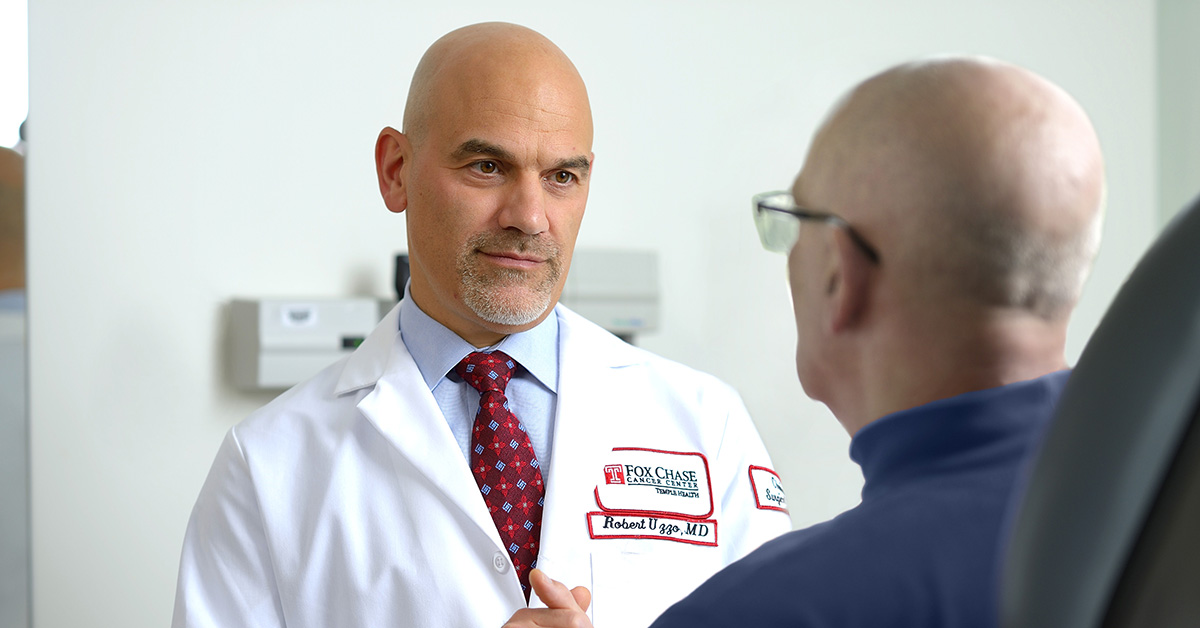
Should You Get a Second Opinion for Kidney Cancer?
-
It’s always worth seeking a second opinion when you or a loved one is faced with a cancer diagnosis. That’s especially true when it comes to kidney cancer because treatment options depend on many factors, including the expertise of the doctors treating the disease.
The kidneys are bean-shaped organs that act as filters to clean waste out of the blood. Kidney cancer, which can occur in one or both kidneys, is among the 10 most common cancers in women and men and mostly affects older adults. It’s sometimes found when a person has symptoms such as back pain or blood in their urine. But in other cases, it’s discovered incidentally, as part of a lab test or imaging scan for something unrelated.
It’s normal to feel anxious or overwhelmed when you are diagnosed with kidney cancer, particularly if you assume that the affected kidney will need to be removed. But a range of treatment options are available, and patients who do need surgery can often have their kidneys spared.
“There are actually many different approaches to treating kidney cancer, and they have to be tailored to the individual patient and their preferences,” said Daniel Geynisman, MD, a medical oncologist at Fox Chase Cancer Center who specializes in genitourinary cancers.
That’s where the value of having another doctor review your case comes in. Even if you’re worried about starting treatment as soon as possible, it is usually worthwhile to take some time to learn more about your diagnosis.
“Patients should step back and get another opinion,” said Robert Uzzo, MD, FACS, Chair of Surgical Oncology and a kidney cancer specialist at Fox Chase. “They’ve got to seek the information they need to make an educated choice.”
“If kidney cancer has not spread, most patients don’t necessarily need drastic treatment measures, like having their entire kidney removed. Many are candidates for partial nephrectomy, or kidney preservation surgery. Some might even be able to take a watch-and-wait approach,” Uzzo said.
Medications can play a role in many treatment plans, too. “Most kidney cancer patients are now candidates for immunotherapy as well as targeted therapy,” Geynisman said.
The key to making your second opinion count is consulting a team with experience. Fox Chase has some of the nation’s leaders in kidney cancer, and it’s at the forefront of kidney cancer treatment.
In fact, the surgeons at Fox Chase are pioneers in the field of partial nephrectomy, as well as minimally invasive and robotic kidney surgery.
“When most places see a kidney tumor, their first response is surgery, and their second response is radical surgery,” Uzzo said. “Our first response is: maybe you don’t need surgery, or if you do, how do we preserve your kidney?”
The medical oncologists at Fox Chase are leaders in kidney cancer as well. “We have participated in many of the pivotal trials that have led to the FDA approval of new drugs for kidney cancer, and continually offer the newest, cutting-edge clinical trials that will lead to the treatments of tomorrow,” Geynisman said.
Ultimately, the best treatment plan for kidney cancer is the one that makes the most sense for you. A second opinion can help you understand your choices—and even uncover options you may not have known were available.
